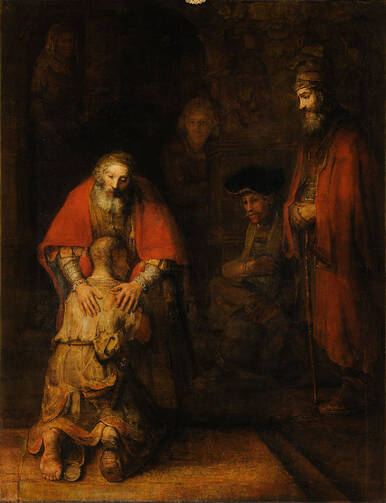At the website The Catholic Thing, Daniel McInerny offers an eloquent defense of the arts, very timely for the upcoming academic year and a nice resource for art teachers who -- not unlike theology teachers -- must defend their subject from those who deem it unnecessary.
In his brief essay "A Catholic Moment in the Arts?" McInerny asks: Why are works of art relevant and important? He answers:
Because they enable us to contemplate how life should be lived. To read a novel or watch or movie is to enter into a contemplative space; it is to wonder at imaginary human beings pursuing happiness real or mistaken and to reflect upon what their efforts mean for our own lives. And as in contemplative prayer, the contemplation of art compels our love as well as our mind.
That is what makes art so attractive: it is not just a conceptual exercise. We can gain much abstract, theological knowledge about the virtue of humility by reading St. Thomas Aquinas’s Summa theologiae. But we can “see” humility in action, and in a sense fall in love with it, in reading Jane Austen’s Pride and Prejudice.
It is because we, in a sense, fall in love with works of art that they have such power to transform our lives. By subtle degrees, we tend to become what we love. Thus it is very important to produce works of the imagination that enable us to picture how actually to live out the decisions we have to make and the roles we have to play.
I encourage you to read the rest of his piece, where McInerny also discusses the examples of Flannery O'Connor and Evelyn Waugh and, like Dana Gioia, takes up the question: Where have all the Catholic writers gone?








